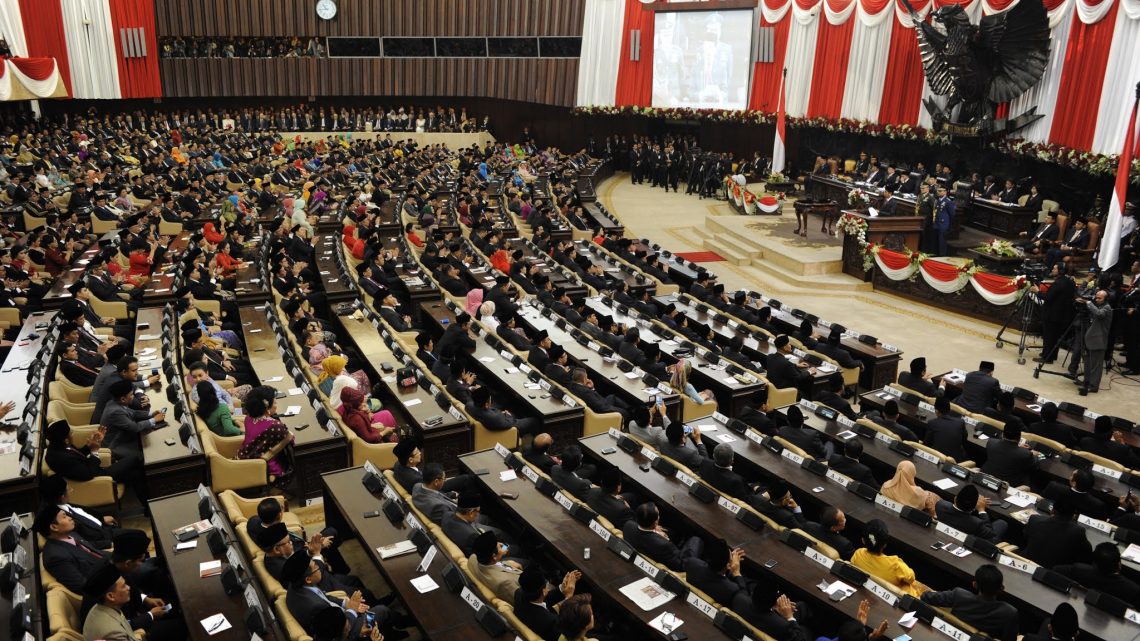
Indonesia’s House of Representatives Dropped an Anti-Sexual Violence Bill
July 3, 2020The Legislative Board of the Indonesian House of Representatives on Thursday officially withdrew from consideration an anti-sexual violence bill, ostensibly to better focus on the country’s COVID-19 recovery strategy, though the bill had run afoul of conservatives in the House for its alleged “liberal perspective.”
Prior to the bill’s official withdrawal on Thursday, signals that the law would be dropped had drawn criticism from women’s rights activists who accused House members of failing to stand up for victims of sexual assault. Lawmakers, however, insisted the pandemic took precedence, and have prioritized other bills aimed at boosting Indonesia’s economy.
However, other factors certainly influenced the decision, including the fact that several factions representing conservative groups and religious parties had rejected the anti-sexual violence bill on the basis that it would acknowledge the existence of marital rape.
“The title, definition of sexual assault, and punishment of this bill are still debated, especially regarding the support for victims’ recovery," Marwan Dasopang, the male deputy chair of the House’s commission on religious, social, and women’s affairs, was quoted as saying in a Tirto report.
But women’s advocates were quick to criticize the bill’s withdrawal.
“How many women would have to be victims before the House members realize that sexual violence is serious crime? If the government ignores this issue, it means they have committed human rights violations. It means they don’t stand with the victims,” said Uli Pangaribuan, of the Legal Aid Foundation of the Indonesian Women’s Association for Justice (LBH APIK), in an interview with VICE News.
On Tuesday, The Legislative Board ordered the religious, social, and women’s affairs commission to exclude the anti-sexual violence bill from the roster of 2020’s legislation priorities, with Deputy Chairman Dasopang saying the bill was “too difficult to discuss.”
“And I think the wellbeing of the elderly is more important now. Since the disaster management bill is already underway, we can start working on the elderly welfare bill,” Dasopang told Kompas during a meeting with the Legislative Board on Tuesday.
Board Chairman Supratman Adi Agtas proposed the plan in order to reduce the workload of the National Legislation Program (Prolegnas), which is expected to conclude by October. The decision, however, came after the Indonesian minister for women's empowerment and child protection reported a surge in domestic violence and child abuse cases amid the pandemic in April.
“We have not had enough time to discuss these bills because of COVID-19, so I think it’s better for us to withdraw some of them from our Prolegnas list. We can re-add it in the next program,” said Agtas, according to Detik.
It was unclear, however, why the lawmakers decided to finally pull the plug on the bill, which was introduced in 2016.
The anti-sexual violence bill would have addressed an urgent issue in Indonesia, where one in three women has been sexually or physically assaulted. VICE News also exposed in 2018 that Indonesian educational institutions have been plagued by what some characterize as a persistent rape culture.
VICE’s #NamaBaikKampus project, in conjunction with with Tirto and the Jakarta Post, compiled the stories of 174 sexual assault survivors from 79 different universities across Indonesia.
Meanwhile, data from the National Commission on Violence Against Women shows there were more than 431,000 cases of violence against women in 2019 alone—up 6 percent from the previous year. Even so, however, such cases are believed to be underreported.
The withdrawal of the bill will only make it harder for the survivors to report assaults they’ve experienced because there is no law protecting them.
“The bill is ‘too difficult to discuss’ because they lack political will to ensure justice for the victims,” Siti Aminah Tardi, head of the National Commission on Violence Against Women, told Tempo.

